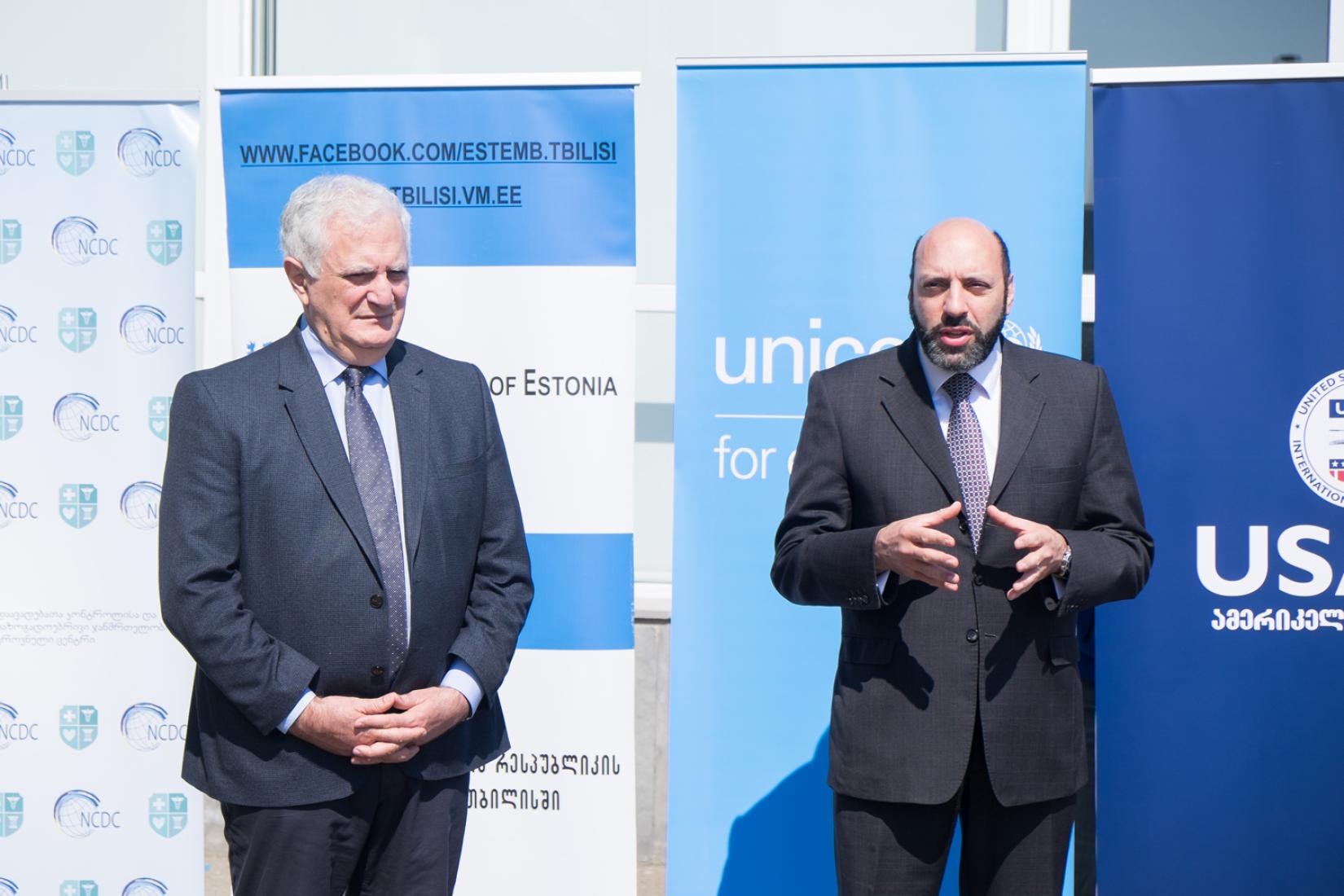Equipment for testing toxic metals handed over to the National Centre for Disease Control and Public Health
30 April 2020
- Equipment will be used for studying of lead exposure sources

Four XRF analyzers – special portable handheld devices which allow testing toxic metal content in different kinds of specimens were delivered to the National Centre for Disease Control and Public Health (NCDC) today.
The XRF analyzers were procured by UNICEF Georgia with financial support from USAID and the Estonia Development Cooperation and will be used to study lead exposure sources and pathways.
The Multiple Indicator Cluster Survey published last year, collected over 1,570 venous blood samples from children aged 2-7 years. In Georgia, 41 per cent of children were found to have blood lead levels equal to or greater than 5 μg/dL - about ten times higher than the prevalence found in developed countries.

To tackle the problem, UNICEF developed a three-phase strategy. The first phase was understanding the problem, which was carried out through the MICS survey. The second was to search for the sources and pathways (of lead contamination). The third phase will entail supporting the implementation of a national response plan developed by the Government.
“We praise the Government of Georgia for their goodwill and readiness to acknowledge the problem and to work on a response straightaway,” said Dr. Ghassan Khalil, UNICEF Representative in Georgia. “We have a very strong partnership with the National Centre for Disease Control (NCDC) and we are grateful to the Estonian Embassy and USAID for supporting us in identifying the problem and searching the sources of lead contamination”.
“This is really about a contribution to the human capacity development of children of Georgia. USAID is proud to be a partner in this important time in public health," - Adam Schmidt, director of USAID/Georgia's Democracy, Governance & Social Development Office.
The XRF analyzers will enable a further study of sources of lead contamination including testing the sites where children live as well as surrounding areas. Due to COVID-19 related disruptions, the fieldwork of studying the sources of lead exposure has been postponed and will be undertaken as soon as the situation stabilizes.


